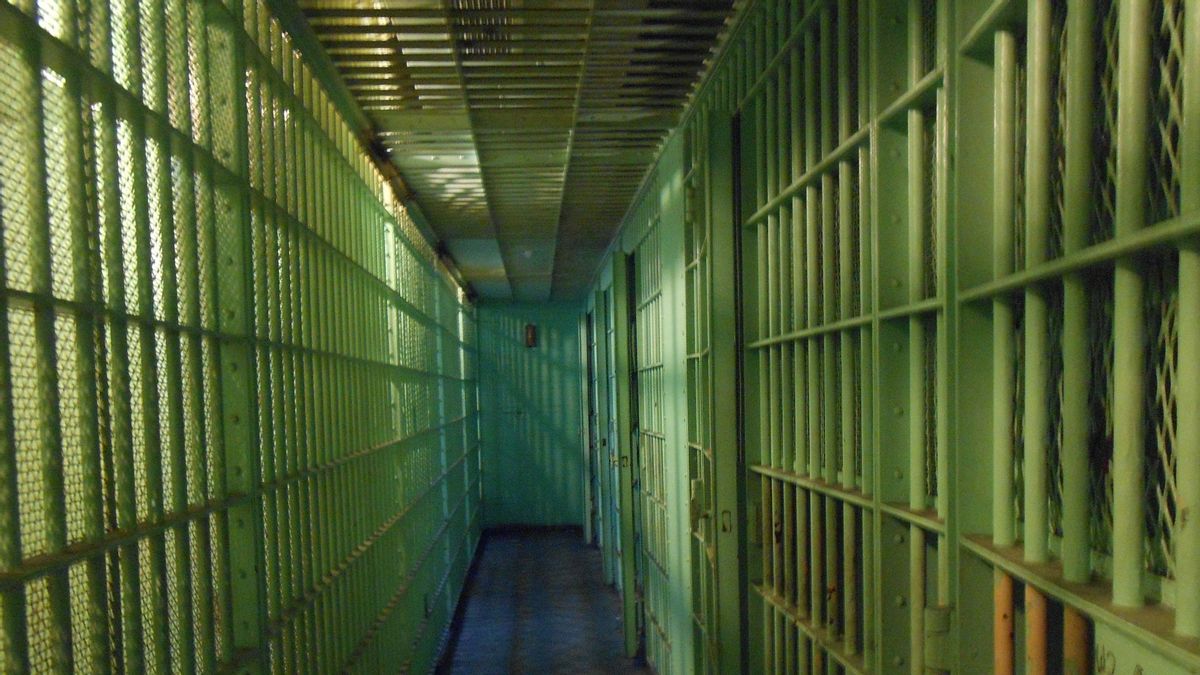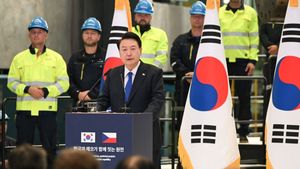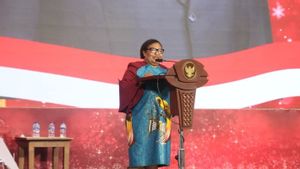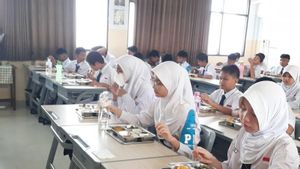JAKARTA - The Directorate General of Corrections has ensured that convicts of corruption, terrorism and other extra-ordinary crimes are not included in the list of 30 thousand people who will be released to prevent the spread of COVID-19.
Director of Prisoners Development and Production Work Training at the Directorate General of Corrections (Ditjenpas) Kemenkumham Junaedi said that the inmates who will be released are certainly not inmates associated with Government Regulation (PP) Number 99 of 2012.
"The spread of COVID-19 in prisons and remand centers is carried out accelerated expenditure and release through assimilation and integration which is the territory of the Indonesian Minister of Law and Human Rights. (Acceleration) is given to inmates who are not related, once again, not related to PP 99," Work Training Production at the Directorate General of Corrections at the Ministry of Law and Human Rights, Junaedi in a video conference on Wednesday, March 1.
In Government Regulation Number 99 of 2012, there are a number of types of crimes that have different provisions for fulfilling the rights of prisoners.
The crimes referred to are criminal acts of terrorism, narcotics and narcotics precursors, psychotropic drugs, corruption, state security crimes, serious human rights crimes (HAM), and other transnational organized crimes.
Meanwhile, Minister of Law and Human Rights Yasonna Laoly will propose a revision of Government Regulation Number 99 of 2012 to prevent the spread of COVID-19. Moreover, the condition of prisons in Indonesia currently exceeds the capacity provided.
In a virtual meeting with Commission III of the DPR RI, Yasonna said that if this revision was implemented, the Ministry of Law and Human Rights would release corrupt convicts over 60 years of age who had served 2/3 of their prison terms. Their number is about 300 people.
In addition, there are also prisoners with a number of criteria to be expelled. Among them, narcotics convicts who are sentenced to 5 to 10 years in prison and have served 2/3 of their sentence. When this revision is approved, these prisoners will undergo assimilation at home.
Furthermore, the Ministry of Law and Human Rights will issue special criminal convicts who have chronic diseases that have been declared by government hospitals. Their number is estimated at 1,457 and foreign convicts are up to 53 people.
It is planned that the draft revision of this regulation will be brought to a limited meeting to seek approval from President Joko Widodo. Yasonna also said he had written to the Supreme Court not to send new inmates to detention centers.
"So with this reduction, with these additional figures we can do it in the number 50 thousand and gradually it might widen. Moreover, if the police intake can be held back, it will help us overcome the crisis," he said.
Previously reported, Kemenkumham would release some prisoners and children to prevent the spread of the corona virus or Covid-19. The release of some of the prisoners will go through assimilation and parole.
This is in accordance with the decree number M.HH -19.PK.01.04.04. The year 2020, which contains the release and release of prisoners and children through assimilation and integration, is an effort to prevent and rescue prisoners and children who are in Corrections, Special Guidance Institutions for Children, and State Detention Centers from the spread of Covid-19.
However, there are several provisions or other rules for prisoners and children who will be released through assimilation. First, for inmates who have two-thirds of their sentence falls on December 31, 2020 and then for children who have half the sentence falls on December 31, 2020.
The second requirement, namely, that the prisoner and child are not bound by Government Regulation Number 99 of 2012 concerning Terms and Procedures for the Implementation of the Rights of Correctional Assistance and are not undergoing a subsidiary, and are not foreign citizens.
Meanwhile, the provisions for prisoners and children who are released by means of integration, namely parole, parole and leave prior to freedom are prisoners who have served two-thirds of their sentence. Meanwhile, children are those who have served half of their sentence.
The English, Chinese, Japanese, Arabic, and French versions are automatically generated by the AI. So there may still be inaccuracies in translating, please always see Indonesian as our main language. (system supported by DigitalSiber.id)













